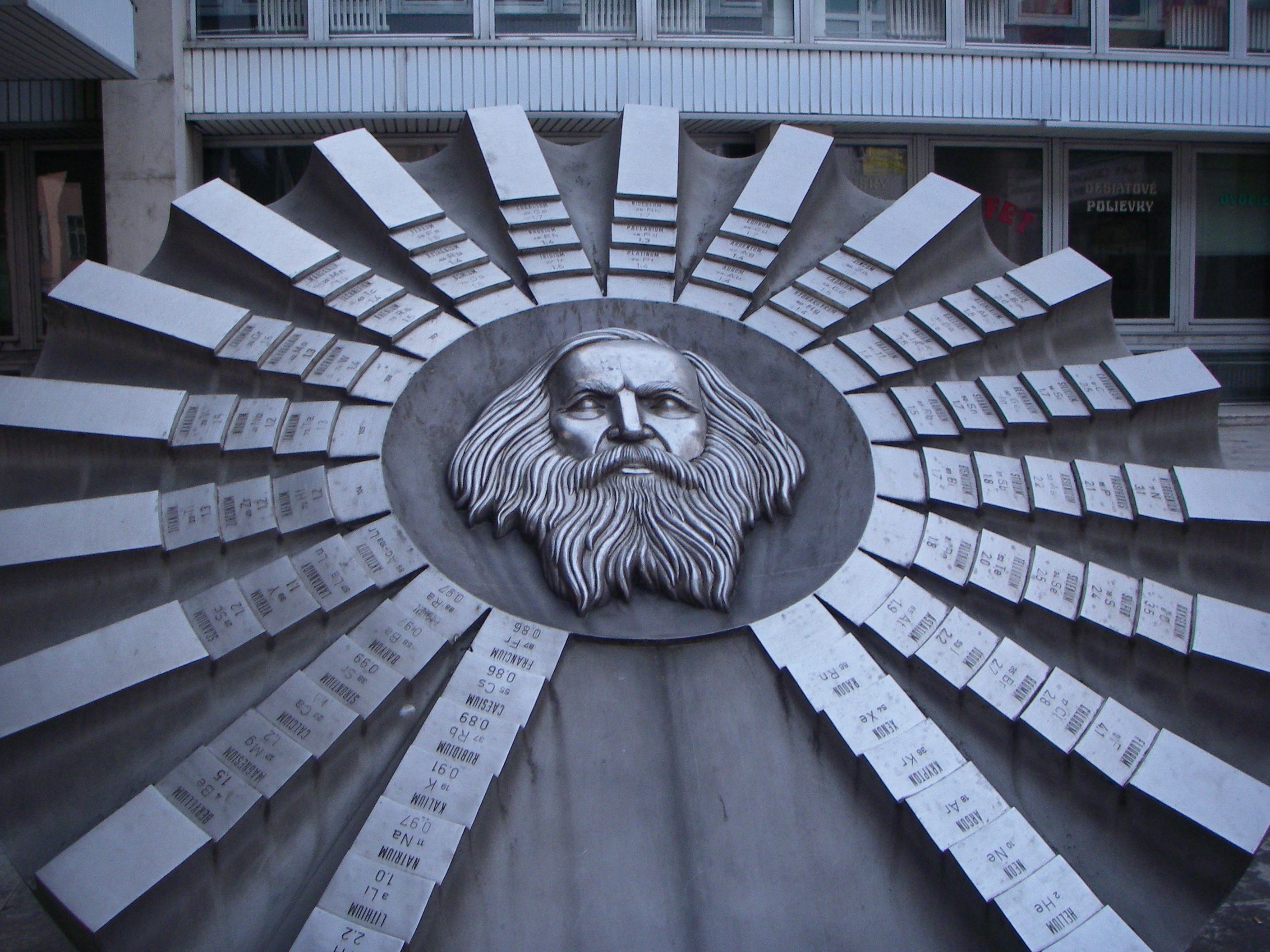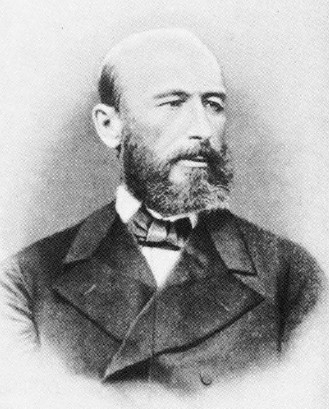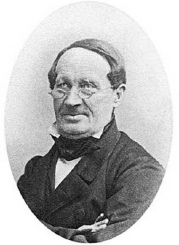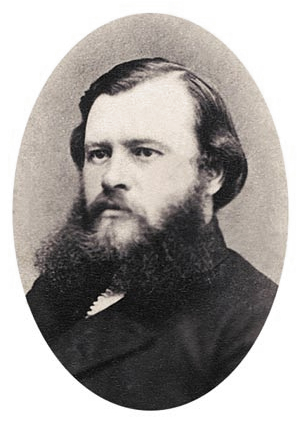List of Russian material scientists on:
[Wikipedia]
[Google]
[Amazon]
 This list of Russian chemists includes the famous chemists and material scientists of the Russian Federation, the Soviet Union, the Russian Empire and other predecessor states of Russia.
This list of Russian chemists includes the famous chemists and material scientists of the Russian Federation, the Soviet Union, the Russian Empire and other predecessor states of Russia.
 *
*
 This list of Russian chemists includes the famous chemists and material scientists of the Russian Federation, the Soviet Union, the Russian Empire and other predecessor states of Russia.
This list of Russian chemists includes the famous chemists and material scientists of the Russian Federation, the Soviet Union, the Russian Empire and other predecessor states of Russia.
Alphabetical list
__NOTOC__A
* Aleksandr Arbuzov, discoveredArbuzov reaction Arbuzov (masculine, russian: Арбузов) or Arbuzova (feminine, russian: Арбузовa) is a Russian surname, derived from the word арбуз (''arbooz'', meaning "watermelon"). It may refer to:
* Aleksandr Arbuzov (1877–1968), Russian and ...
.
B
*Alexander Baykov
Alexander Alexandrovich Baykov (; August 6, 1870 – April 6, 1946) was a Soviet university professor, scientist specializing in the fields of metallurgy and chemistry and an academician of the USSR Academy of Sciences.
Early life and educatio ...
, an academician of the USSR Academy of Sciences.
*Ernest Beaux
Ernest Beaux ( – 9 June 1961) was a Russian-born French perfumer who is best known for creating Chanel No. 5, which is perhaps the world's most famous perfume.
Family background
Born in Moscow, Ernest Beaux was the son of Edouard Hyppolite B ...
, inventor of Chanel No. 5
Chanel No. 5 was the first perfume launched by French couturier Gabrielle "Coco" Chanel in 1921. The scent formula for the fragrance was compounded by French-Russian chemist and perfumer Ernest Beaux. The design of its bottle has been an impo ...
, ''"the world's most legendary fragrance"''
*Nikolay Beketov
Nikolay Nikolayevich Beketov (russian: Николай Николаевич Бекетов; , Alferovka (now Beketovka), Penza Governorate, Russian Empire – , St. Petersburg, Russian Empire) was a Russian Imperial physical chemist and metallur ...
, inventor of aluminothermy, a founder of physical chemistry
* Friedrich Konrad Beilstein, proposed the Beilstein test for the detection of halogens, author of the Beilstein database
The Beilstein database is the largest database in the field of organic chemistry, in which compounds are uniquely identified by their Beilstein Registry Number. The database covers the scientific literature from 1771 to the present and contains ex ...
in organic chemistry
* Boris Belousov, chemist and biophysicist, discoverer of Belousov–Zhabotinsky reaction, a classical example of non-equilibrium thermodynamics *
*Alexander Borodin
Alexander Porfiryevich Borodin ( rus, link=no, Александр Порфирьевич Бородин, Aleksandr Porfir’yevich Borodin , p=ɐlʲɪkˈsandr pɐrˈfʲi rʲjɪvʲɪtɕ bərɐˈdʲin, a=RU-Alexander Porfiryevich Borodin.ogg, ...
, chemist and composer, the author of the famous opera '' Prince Igor'', discovered Borodin reaction, co-discovered Aldol reaction
* Aleksandr Butlerov, discovered hexamine, formaldehyde and formose reaction
The formose reaction, discovered by Aleksandr Butlerov in 1861, and hence also known as the Butlerov reaction, involves the formation of sugars from formaldehyde. The term formose is a portmanteau of formaldehyde and aldose.
Reaction and mechanism ...
(the first synthesis of sugar
Sugar is the generic name for sweet-tasting, soluble carbohydrates, many of which are used in food. Simple sugars, also called monosaccharides, include glucose, fructose, and galactose. Compound sugars, also called disaccharides or double ...
), the first to incorporate double bonds into structural formulae, a founder of organic chemistry and the theory of chemical structure
C
*Dmitry Chernov
Dmitry Konstantinovich Chernov (or Tchernov, russian: Дмитрий Константинович Чернов; Saint-Petersburg - January 2, 1921 Yalta) was a Russian metallurgist.metallography, discovered  *
*


 re-discovered smalt and founded the scientific study of glass, proved that the phlogiston theory was false, the first to record the freezing of
re-discovered smalt and founded the scientific study of glass, proved that the phlogiston theory was false, the first to record the freezing of
 * Nikolai Menshutkin, discoverer of Menshutkin reaction in organic chemistry
* Nikolai Menshutkin, discoverer of Menshutkin reaction in organic chemistry
 * Vladimir Shukhov, polymath, inventor of chemical cracking
*
* Vladimir Shukhov, polymath, inventor of chemical cracking
*
polymorphism
Polymorphism, polymorphic, polymorph, polymorphous, or polymorphy may refer to:
Computing
* Polymorphism (computer science), the ability in programming to present the same programming interface for differing underlying forms
* Ad hoc polymorphis ...
in metals, built the iron- carbon phase diagram
A phase diagram in physical chemistry, engineering, mineralogy, and materials science is a type of chart used to show conditions (pressure, temperature, volume, etc.) at which thermodynamically distinct phases (such as solid, liquid or gaseous ...
*Aleksei Chichibabin
Alekséy Yevgényevich Chichibábin (russian: Алексей Евгеньевич Чичибабин) was a Soviet Union, Soviet/Russian organic chemist, born , Kuzemin village, current Sumy Oblast, Ukraine, died in Paris, France, 15 August 1945. H ...
, discovered Chichibabin pyridine synthesis
The Chichibabin pyridine synthesis () is a method for synthesizing pyridine rings. The reaction involves the condensation reaction of aldehydes, ketones, α,β-Unsaturated carbonyl compounds, or any combination of the above, with ammonia. It was ...
, Bodroux-Chichibabin aldehyde synthesis and Chichibabin reaction
The Chichibabin reaction (pronounced ' (chē')-chē-bā-bēn) is a method for producing 2-aminopyridine derivatives by the reaction of pyridine with sodium amide. It was reported by Aleksei Chichibabin in 1914. The following is the overall form of ...
*Lev Chugaev
Lev Aleksandrovich Chugaev (16 October 1873 – 26 September 1922) was a Russian chemist. At the height of his career, he was professor of chemistry at the University of Petersburg, being the successor to Dmitri Mendeleev. He was active in the fi ...
, discoverer of Chugaev elimination
The Chugaev elimination is a chemical reaction that involves the elimination of water from alcohols to produce alkenes. The intermediate is a xanthate. It is named for its discoverer, the Russian chemist Lev Aleksandrovich Chugaev (1873-1922), who ...
in organic chemistry
* Karl Ernst Claus, chemist and botanist, discoverer of ruthenium *
*Valeriy Chernyshev
Valeriy V. Chernyshev (born 25 September 1944 in Kemerovo
Kemerovo ( rus, Ке́мерово, p=ˈkʲemʲɪrəvə) is an industrial city and the administrative center of Kemerovo Oblast, Russia, located at the confluence of the Iskitimka and T ...
, chemist, honourable inventor of Russia, major specialist in nitrogen chemistry
D
*Nikolay Demyanov
Nikolay Yakovlevich Demyanov (russian: Никола́й Я́ковлевич Демья́нов; , Tver – March 19, 1938, Moscow), also known as Demjanov and Demjanow, was a Russian organic chemist and a member of the USSR Academy of Sciences (1 ...
, discoverer of Demjanov rearrangement The Demjanov rearrangement is the chemical reaction of primary amines with nitrous acid to give rearranged alcohols. It involves substitution by a hydroxyl group with a possible ring expansion. It is named after the Russian chemist Nikolai Jakovlev ...
in organic chemistry
*Aleksandr Dianin
Aleksandr Pavlovich Dianin (russian: Александр Павлович Дианин; 20 April 1851 – 6 December 1918) was a Russian chemist from Saint Petersburg. He carried out studies on phenols and discovered a phenol derivative now known ...
, discoverer of Bisphenol A
Bisphenol A (BPA) is a chemical compound primarily used in the manufacturing of various plastics. It is a colourless solid which is soluble in most common organic solvents, but has very poor solubility in water. BPA is produced on an industrial s ...
and Dianin's compound
Dianin's compound (4-''p''-hydroxyphenyl-2,2,4-trimethylchroman) was first prepared by Aleksandr Dianin in 1914. This compound is a condensation isomer of bisphenol A and acetone and of special importance in host–guest chemistry because it can f ...
F
* Constantin Fahlberg, inventor of saccharin, the first artificial sweetener *Alexey Favorsky
Alexey Yevgrafovich Favorsky (russian: Алексе́й Евгра́фович Фаво́рский; – 8 August 1945), was a Russian and Soviet chemist. Hero of Socialist Labour (1945).
Life
Favorsky studied chemistry at the imperial Saint Pet ...
, discoverer of Favorskii rearrangement
The Favorskii rearrangement is principally a rearrangement of cyclopropanones and α-halo ketones that leads to carboxylic acid derivatives. In the case of cyclic α-halo ketones, the Favorskii rearrangement constitutes a ring contraction. This ...
and Favorskii reaction in organic chemistry
* Alexander Frumkin, a founder of modern electrochemistry, author of the theory of electrode reactions
*Evgraf Fedorov
Evgraf Stepanovich Fedorov (russian: Евгра́ф Степа́нович Фёдоров, – 21 May 1919) was a Russian mathematician, crystallographer and mineralogist.
Fedorov was born in the Russian city of Orenburg. His father was a topo ...
, first to enumerate all of the 230 space groups of crystals, thus founding the modern crystallography
Crystallography is the experimental science of determining the arrangement of atoms in crystalline solids. Crystallography is a fundamental subject in the fields of materials science and solid-state physics (condensed matter physics). The wor ...

G
*Andre Geim
, birth_date =
, birth_place = Sochi, Russian SFSR, Soviet Union
, death_date =
, death_place =
, workplaces =
, nationality = Dutch and British
, fields = Condensed matter physics
...
, inventor of graphene, developer of gecko tape, Nobel Prize in Physics winner
*Igor Gorynin
Igor Vasilyevich Gorynin (russian: Игорь Васильевич Горынин; 10 March 1926 – 9 May 2015) was a Soviet and Russian metallurgist, creator of many new titanium and aluminium alloys, and reactor steels. He was the director ...
, inventor of weldable The weldability, also known as joinability,. of a material refers to its ability to be welded. Many metals and thermoplastics can be welded, but some are easier to weld than others (see Rheological weldability). A material's weldability is used to ...
titanium alloys, high strength aluminium alloys, and many radiation-hardened
Radiation hardening is the process of making electronic components and circuits resistant to damage or malfunction caused by high levels of ionizing radiation (particle radiation and high-energy electromagnetic radiation), especially for environm ...
steels
H
*Germain Henri Hess
Germain Henri Hess (russian: Герман Иванович Гесс, German Ivanovich Gess; 7 August 1802 – 30 November 1850) was a Swiss-Russian chemist and doctor who formulated Hess's law, an early principle of thermochemistry.
Early li ...
, (1802–1850), Swiss-born Russian chemist. Namesake of Hess's Law.
*Victor Henri
Victor Henri (6 June 1872 – 21 June 1940) was a French-Russian Physical chemistry, physical chemist and physiologist. He was born in Marseilles as a son of Russian parents. He is known mainly as an early pioneer in enzyme kinetics. He publishe ...
(1872–1940), French physical chemist of Russian parents.
I
*Vladimir Ipatieff
Vladimir Nikolayevich Ipatieff (also Ipatyev; russian: Владимир Николаевич Ипатьев); (November 21, 1867 (November 9 OS) – November 29, 1952) was a Russian and American chemist. His most important contributions are in the ...
, inventor of Ipatieff bomb, a founder of petrochemistry
Petrochemicals (sometimes abbreviated as petchems) are the chemical products obtained from petroleum by refining. Some chemical compounds made from petroleum are also obtained from other fossil fuels, such as coal or natural gas, or renewable sou ...
* Isidore, legendary inventor of the Russian vodka
Vodka ( pl, wódka , russian: водка , sv, vodka ) is a clear distilled alcoholic beverage. Different varieties originated in Poland, Russia, and Sweden. Vodka is composed mainly of water and ethanol but sometimes with traces of impuriti ...
J
* Boris Jacobi, re-discoveredelectroplating
Electroplating, also known as electrochemical deposition or electrodeposition, is a process for producing a metal coating on a solid substrate through the reduction of cations of that metal by means of a direct electric current. The part to be ...
and initiated its practical usage
K
* Pyotr Kapitsa, discovered superfluidity while studying liquid helium, Nobel Prize in Physics winner * Salambek Khadzhiyev, petrochemist who specialized in the production of low-pour, high-density petroleum fuels transformations of hydrocarbons on zeolite * Morris Kharasch, inventor of anti-microbial compound thimerosal * Gottlieb Kirchhoff, discoverer of glucose *Ivan Knunyants
Ivan Lyudvigovich Knunyants ( hy, Իվան Կնունյանց, russian: Иван Людвигович Кнунянц; – 21 December 1990), was a Soviet chemist of Armenian origin, academician of the Academy of Sciences of the Soviet Union, a m ...
, inventor of poly-caprolactam, founder of Soviet school of fluorocarbon
Fluorocarbons are chemical compounds with carbon-fluorine bonds. Compounds that contain many C-F bonds often has distinctive properties, e.g., enhanced stability, volatility, and hydrophobicity. Fluorocarbons and their derivatives are commerci ...
's chemistry, a developer of Soviet chemical weapons
L
* Sergei Lebedev, inventor ofpolybutadiene
Polybutadiene utadiene rubber BRis a synthetic rubber. Polybutadiene rubber is a polymer formed from the polymerization of the monomer 1,3-butadiene. Polybutadiene has a high resistance to wear and is used especially in the manufacture of tir ...
, the first commercially viable synthetic rubber
A synthetic rubber is an artificial elastomer. They are polymers synthesized from petroleum byproducts. About 32-million metric tons of rubbers are produced annually in the United States, and of that amount two thirds are synthetic. Synthetic rubbe ...
*Mikhail Lomonosov
Mikhail Vasilyevich Lomonosov (; russian: Михаил (Михайло) Васильевич Ломоносов, p=mʲɪxɐˈil vɐˈsʲilʲjɪvʲɪtɕ , a=Ru-Mikhail Vasilyevich Lomonosov.ogg; – ) was a Russian Empire, Russian polymath, s ...
, polymath, coined the term '' physical chemistry'', re-discovered smalt and founded the scientific study of glass, proved that the phlogiston theory was false, the first to record the freezing of
re-discovered smalt and founded the scientific study of glass, proved that the phlogiston theory was false, the first to record the freezing of mercury
Mercury commonly refers to:
* Mercury (planet), the nearest planet to the Sun
* Mercury (element), a metallic chemical element with the symbol Hg
* Mercury (mythology), a Roman god
Mercury or The Mercury may also refer to:
Companies
* Merc ...
*Aleksandr Loran
Aleksandr Grigoryevich Loran (russian: Александр Григорьевич Лоран) (1849 – presumably 1911), sometimes called Alexander Laurant or Aleksandr Lovan or Aleksandr Lavrentyev, was a Russian teacher and inventor of fire figh ...
, inventor of fire fighting foam
M
* Vladimir Markovnikov, author of theMarkovnikov's rule
In organic chemistry, Markovnikov's rule or Markownikoff's rule describes the outcome of some addition reactions. The rule was formulated by Russian chemist Vladimir Markovnikov in 1870.
Explanation
The rule states that with the addition of a p ...
in organic chemistry, discoverer of naphthenes
* Yurii Sh. Matros, Russian-American chemist and chemical engineer, developer of Matros reactor, founder of Matros Technologies Inc.
* Dmitri Mendeleyev, invented the Periodic table
The periodic table, also known as the periodic table of the (chemical) elements, is a rows and columns arrangement of the chemical elements. It is widely used in chemistry, physics, and other sciences, and is generally seen as an icon of ch ...
of chemical elements
A chemical element is a species of atoms that have a given number of protons in their nuclei, including the pure substance consisting only of that species. Unlike chemical compounds, chemical elements cannot be broken down into simpler sub ...
, the first to predict the properties of elements yet to be discovered, invented pyrocollodion Pyrocollodion is a smokeless powder invented by Dmitri Mendeleev. A variant of nitrocellulose family of compounds, it was discovered by Dmitri Mendeleev in 1892. He and proposed its use as a replacement for gunpowder in the Russian Navy. This ...
, developer of pipelines and a prominent researcher of vodka * Nikolai Menshutkin, discoverer of Menshutkin reaction in organic chemistry
* Nikolai Menshutkin, discoverer of Menshutkin reaction in organic chemistry
N
*Sergey Namyotkin
Sergey Semyonovich Nametkin (russian: Сергей Семёнович Намёткин; – 5 August 1950) was a Russian organic chemist, a prominent researcher in terpene chemistry, the cracking of petrochemicals, and rearrangement of camphe ...
, prominent researcher of terpenes, discoverer of Nametkin rearrangement
Sergey Semyonovich Nametkin (russian: Сергей Семёнович Намёткин; – 5 August 1950) was a Russian organic chemist, a prominent researcher in terpene chemistry, the cracking of petrochemicals, and rearrangement of camp ...
* Konstantin Novoselov, inventor of graphene, developer of gecko tape, Nobel Prize in Physics winner
O
*Anatoly V. Oleynik
Anatoly Vasilievich Oleynik, Professor of Chemistry at the University of Nizhni Novgorod.
Currently serving as the scientific supervisor for the photochemistry lab as well as the v-rector for the University for scientific research at University ...
, researcher in photochemistry.
P
*Ilya Prigogine
Viscount Ilya Romanovich Prigogine (; russian: Илья́ Рома́нович Приго́жин; 28 May 2003) was a physical chemist and Nobel laureate noted for his work on dissipative structures, complex systems, and irreversibility.
Biogra ...
, researcher of dissipative structures
A dissipative system is a thermodynamically open system which is operating out of, and often far from, thermodynamic equilibrium in an environment with which it exchanges energy and matter. A tornado may be thought of as a dissipative system. Dis ...
, complex systems
A complex system is a system composed of many components which may interact with each other. Examples of complex systems are Earth's global climate, organisms, the human brain, infrastructure such as power grid, transportation or communication s ...
and irreversibility
In science, a process that is not reversible is called irreversible. This concept arises frequently in thermodynamics. All complex natural processes are irreversible, although a phase transition at the coexistence temperature (e.g. melting of ic ...
, Nobel Prize winner
R
* Sergey Reformatsky, discoverer of Reformatsky reaction in organic chemistryS
* Nikolay Semyonov, chemical physicist, author of the chain reaction theory, Nobel Prize winner * Carl Schmidt, analyzed the crystal structure of many biochemicals, proved that animal and plant cells are chemically similar * Vladimir Shukhov, polymath, inventor of chemical cracking
*
* Vladimir Shukhov, polymath, inventor of chemical cracking
*Mikhail Shultz
Mikhail Mikhaylovich Shultz (russian: Михаи́л Миха́йлович Шульц, also spelled Schultz, Shul'ts, Shults, Shul’c etc.) (1 July 1919 – 9 October 2006), was a Soviet/Russian physical chemist, artist. Proceedings of the thermo ...
, physical chemist and artist; one of the creators the glass electrode theory; author of several thermodynamic methods.
T
* Nikolai Trifonov, chemistry professor mentioned in The Gulag Archipelago * Mikhail Tsvet, botanist, inventor of chromatographyV
* Victor Veselago, first researcher of materials with negative permittivity and permeability *Vera Bogdanovskaia
Vera Yevstafievna Popova, née Vera Bogdanovskaya (Вера Евстафьевна Попова; 17 September 1867 – 8 May 1896) was a Russian chemist. She was one of the first female chemists in Russia, and the first Russian female author of a ...
, first woman to have died in the cause of chemistry due to a laboratory explosion
W
*Paul Walden
Paul Walden ( lv, Pauls Valdens; russian: Павел Иванович Вальден; german: Paul von Walden; 26 July 1863 – 22 January 1957) was a Russian, Latvian and German chemist known for his work in stereochemistry and history of che ...
, discovered the Walden inversion and ethylammonium nitrate
Ethylammonium nitrate or ethylamine nitrate (EAN) is a salt with formula or ()·. It is an odorless and colorless to slightly yellowish liquid with a melting point of 12 °C. This compound was described by Paul Walden in 1914,
and is believ ...
(the first room temperature ionic liquid)
Z
*Alexander Zaitsev Alexander Zaytsev may refer to:
*Alexander Zaytsev (artist), Alexander Dmitryevich Zaytsev (1903–1982), Russian painter and art educator
*Alexander Zaytsev (pilot), Alexander Andreyevich Zaytsev (1911–1965), Soviet aircraft pilot and Hero of the ...
, author of the Zaitsev's rule in organic chemistry
*Nikolai Zinin Nikolay Nikolaevich Zinin (russian: link=no, Никола́й Никола́евич Зи́нин; 25 August 1812, in Shusha – 18 February 1880, in Saint Petersburg) was a Russian organic chemist.
Life
He studied at the University of Kazan wh ...
, discovered benzidine
Benzidine (trivial name), also called 1,1'-biphenyl-4,4'-diamine (systematic name), is an organic compound with the formula (C6H4NH2)2. It is an aromatic amine. It is a component of a test for cyanide. Related derivatives are used in the produc ...
, co-discovered aniline, the first President of Russian Physical-Chemical Society
*Nikolay Zelinsky
Nikolay Dmitriyevich Zelinsky (; 6 February 1861 – 31 July 1953) was a Russian Empire, Russian and USSR, Soviet chemist. Academician of the Academy of Sciences of the Soviet Union (1929).
Zelinsky studied at the University of Odessa and at the ...
, inventor of activated charcoal
"Activated" is a song by English singer Cher Lloyd. It was released on 22 July 2016 through Vixen Records. The song was made available to stream exclusively on ''Rolling Stone'' a day before to release (on 21 July 2016).
Background
In an interv ...
gas mask
A gas mask is a mask used to protect the wearer from inhaling airborne pollutants and toxic gases. The mask forms a sealed cover over the nose and mouth, but may also cover the eyes and other vulnerable soft tissues of the face. Most gas mask ...
in Europe during World War I, co-discoverer of Hell-Volhard-Zelinsky halogenation, a founder of petrochemistry
Petrochemicals (sometimes abbreviated as petchems) are the chemical products obtained from petroleum by refining. Some chemical compounds made from petroleum are also obtained from other fossil fuels, such as coal or natural gas, or renewable sou ...
*Anatol Zhabotinsky
Anatol Markovich Zhabotinsky (Анато́лий Ма́ркович Жаботи́нский) (January 17, 1938 – September 16, 2008) was a Soviet biophysicist who created a theory of the chemical clock known as Belousov–Zhabotinsky reactio ...
, discoverer of Belousov–Zhabotinsky reaction, a classical example of non-equilibrium thermodynamics
See also
* List of chemists * List of Russian scientists * List of Russian inventors * Science and technology in Russia {{DEFAULTSORT:List Of Russian Chemists Russian Russian chemists Chemists